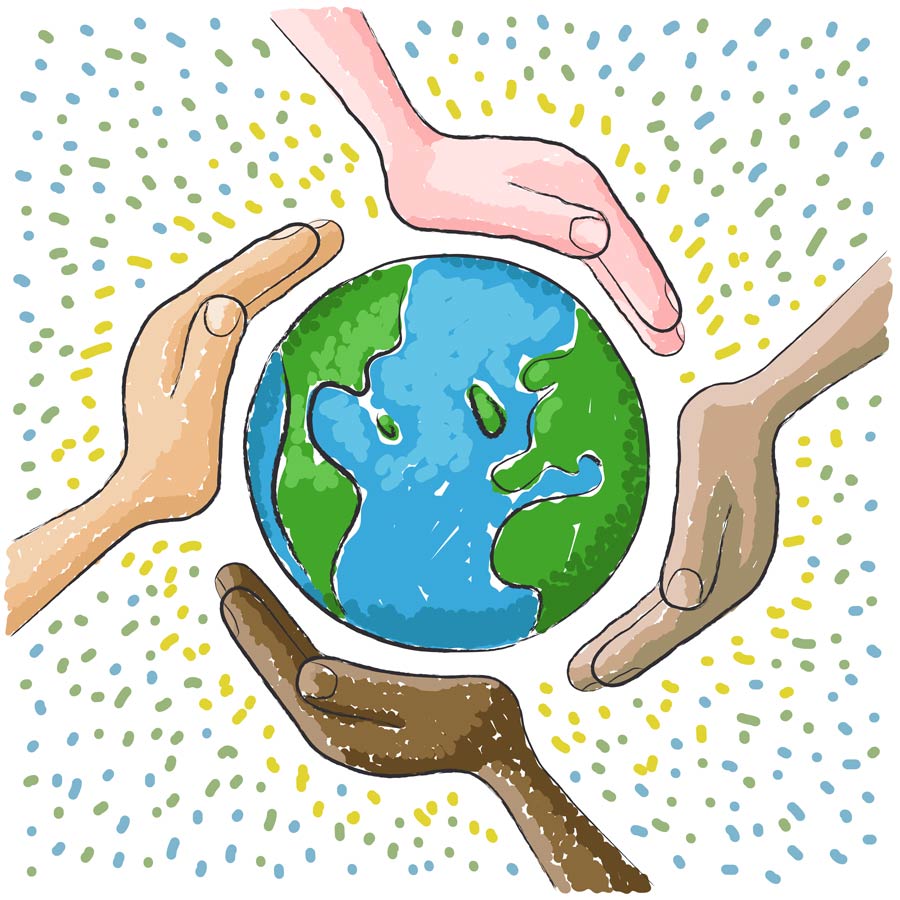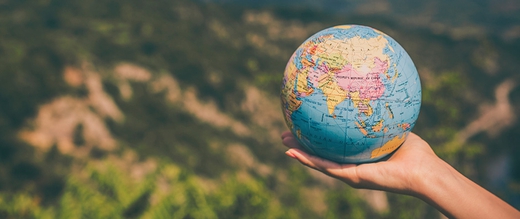The views expressed in our content reflect individual perspectives and do not represent the authoritative views of the Baha'i Faith.
A great civilization is not conquered from without until it has destroyed itself within. The essential causes of Rome’s decline lay in her people, her morals, her class struggle, her failing trade, her bureaucratic despotism, her stifling taxes, her consuming wars. – Will Durant
It is not the strongest of the species that survive, nor the most intelligent, but the one most responsive to change. – Charles Darwin
The United Nations included one major aim in its Millennium Development Goals that initially struck some people as out of place: Goal 7: Integrate the principles of sustainable development into country policies and programmes and reverse the loss of environmental resources. What does that have to do, some asked, with alleviating poverty and hunger?
But this particular MDG goal, in hindsight probably the toughest and most intractable of them all—and largely unmet at the end of the 15-year MDG term—has now become the key theme in the UN’s next round of global targets, now called the Sustainable Development Goals, or SDGs.
Did we make any progress in the past 15 years, as a planet, on this front? Yes, we made some:
Ozone-depleting substances have been virtually eliminated, and the ozone layer is expected to recover by the middle of this century.
In 2015, 91 per cent of the global population uses an improved drinking water source, compared to 76 per cent in 1990.
Since 1990, 2.1 billion people have gained access to improved sanitation, and the proportion of people practising open defecation globally has fallen almost by half.
The proportion of urban population living in slums in the developing regions fell from 39.4 per cent to 29.7 per cent between 2000 and 2014. – from the UN MDG 2015 Report
But the overwhelming main problem—climate change—still stares us all in the face:
Global emissions of carbon dioxide have increased by over 50 per cent since 1990. – Ibid.
 Those runaway CO₂ emissions threaten every person on Earth. By altering our planet’s climate, according to the mainstream climate science reported by the Intergovernmental Panel on Climate Change, we risk severely compromising the world’s land- and ocean-based food chain. “All aspects of food security are potentially affected by climate change,” the IPCC has stated. They predict decreasing crop yields, reduced ocean fish stocks and rising food prices, which could lead to famine and war.
Those runaway CO₂ emissions threaten every person on Earth. By altering our planet’s climate, according to the mainstream climate science reported by the Intergovernmental Panel on Climate Change, we risk severely compromising the world’s land- and ocean-based food chain. “All aspects of food security are potentially affected by climate change,” the IPCC has stated. They predict decreasing crop yields, reduced ocean fish stocks and rising food prices, which could lead to famine and war.
That’s why the United Nations, and every country on Earth in the recent Paris Climate Conference, has agreed to make alleviating the worst effects of climate change a top priority going forward. For the first time in human history, every nation has committed to work for the good of all nations and all people. That unprecedented landmark decision, despite all that is wrong with our world, bodes well for the future of the planet and the people who live on it.
That’s also why the UN has already begun work on its 17 new Sustainable Development Goals (SDGs), slated for action in the decade and a half between now and the year 2030:
- No poverty
- Zero hunger
- Good health and well-being
- Quality education
- Gender equality
- Clean water and sanitation
- Affordable and clean energy
- Decent work and economic growth
- Industry, innovation and infrastructure
- Reduced inequalities
- Sustainable cities and communities
- Responsible consumption and production
- Climate action
- Life below water
- Life on land
- Peace, justice and strong institutions
- Partnerships for the goals.
These ambitious goals, (which you can read about in more detail) challenge us all to imagine, work toward and create a new world, where the countries and citizens of the globe unite to improve the lives of people everywhere.
If we meet these global goals by 2030, we will wipe out poverty, fight inequality and tackle climate change on an entirely new level—as the united citizens of one holistic and interconnected world. The Baha’i teachings call on every human being, no matter their nationality, their religion or their race, to join together and “raise high the banners of unity:”
Now is the time for the lovers of God to raise high the banners of unity, to intone, in the assemblages of the world, the verses of friendship and love and to demonstrate to all that the grace of God is one. Thus will the tabernacles of holiness be upraised on the summits of the earth, gathering all peoples into the protective shadow of the Word of Oneness. – Abdu’l-Baha, Selections from the Writings of Abdu’l-Baha, p. 20.
Next: Developing a True Global Partnership

















Comments
Sign in or create an account
Continue with Facebookor